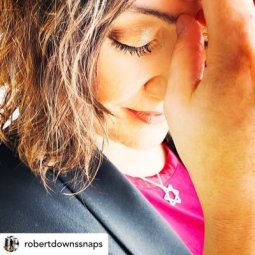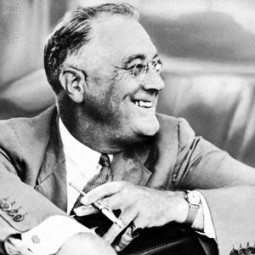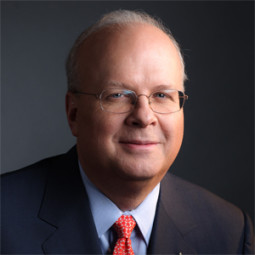
Revelation: aligning with The Good, challenging evil
Today is the second day of Shavuot, the Jewish holiday of revelation. Like Rosh Hashanah, this is a one-day holiday. Hopefully, next year I will be able to provide a fuller explanation of why more traditional Jews celebrate these holidays as two days and others celebrate one day.
Shavuot means "weeks" in Hebrew. We arrive at the day by counting omer (an ancient unit of measurement, a sheaf of grain) for seven weeks from the second day of Passover. On the fiftieth day, we celebrate Shavuot. Originally, this was an agricultural holiday - focused on bringing first fruits to the Temple. Then, the rabbis connected the giving of the Torah on Mt. Sinai with the holiday, hence the focus on revelation. The primary way to celebrate the holiday is with an all-night study session on the night it begins (which was Saturday, June 11, 2016).
This holiday always reminds me of the Shavuot 2011 / 5771, when I reaffirmed my deep desire to go to rabbinical school and recommitted to my daily spiritual practice in particular and Judaism in general. This year, I have almost completed the application process for the Academy for Jewish Religion Rabbinical School.*
Of course, recent events have rattled me. I am particularly distraught that many people have responded to the mass murder at a nightclub in Orlando by denouncing religion in general, and Islam in particular.
Read more
Survey to help us expand Angelheaded Hipster
By answering this short survey, you'll help us prioritize content for Angelheaded Hipster. This survey will also determine your email preferences.
Take the survey
Why do you pray?
Prayer is a form of meditation. It is a dialogue with The Divine.
Does it feel weird to pray in Hebrew, since it's a language you don't know? Do you feel the same way when intoning Sanskrit during a yoga class?
more to come...

Do you believe in commandments?
First a definition - the correct definition of a mitzvah is "a commandment." It is more than a good deed - it is something humans are obligated to do in order to enhance their relationship with The Divine. (The plural form of mitzvah is mitzvot, i.e. commandments.)
Over the centuries, Jewish rabbis defined 613 mitzvot. Do I think you have to follow these commandments to be a good person? Of course not.
Do I think these mitzvot are the only way to create a meaningful relationship with The Divine? No. I think more than one wisdom tradition has created a convenant with God. The Jewish tradition speaks to me and is my preferred way of connecting with my higher self and the Essence of the Universe.
That doesn't mean I follow every commandment in the Bible or written by ancient rabbis. I'm exploring a path that is meaningful to me. There's no law requiring Jews to wear a head covering, but it helps me to feel closer to The Divine and my higher self, so I choose to wear a yarmulke. On the other hand, I'm not sure kosher dietary practices change my relationship with The Divine, so I eat kosher style. I don't mix milk and meat, don't eat pork or shellfish. But my kitchen is not kosher and the meat I buy isn't kosher. My parents will tell you this "kosher style" thing doesn't exist. Then again, they don't bother with any dietary restrictions. More to come..

Is the Bible true?
From my perspective, the Bible is a window to ultimate truth, though it is not always factually true. By understanding the stories contained in the Bible, one can gain insights into human interaction.
As with all questions in this series, more information will be added later.

What's love got to do with Judaism?
I know Christians emphasize loving Christ - isn't Judaism a more rational religion?
American Hebrew Schools tend to over-emphasize the place of logic and rationality in Judaism. Often, they ignore the spiritual aspects of Jewish theology. The basic explanation of Jewish theology is contained in the She'ma. Here's an English translation of the first few lines:
Hear, O Israel, the L-rd is our G-d, the L-rd is One.
The following verse is traditionally recited in an undertone:
Blessed be the name of the glory of His kingdom forever and ever.
You shall love the L-rd your G-d with all your heart, with all your soul, and with all your might. And these words which I command you today shall be upon your heart. You shall teach them thoroughly to your children, and you shall speak of them when you sit in your house and when you walk on the road, when you lie down and when you rise. You shall bind them as a sign upon your hand, and they shall be for a reminder between your eyes. And you shall write them upon the doorposts of your house and upon your gates.
The Shema is a powerful prayer, which Jews are expected to recite twice a day. As you can see from the third line, loving God with all your heart, soul, and might is central to Jewish faith. It's part of the reason that loving your neighbor as yourself is a tenet originating in Judaism - divine sparks reside in all of us and we should appreciate the divine emotionally as well as logically. More to come...

Myth and Modernity
If you believe the Bible is the literal truth, then you believe the earth was created in 6 days, that people should be stoned to death for breaking the Sabbath, and a whole bunch of other things.
If you believe in the theory of evolution, you probably don't believe the Bible as factual history. And you might also think that religious people are backward because they don't understand the "scientific basis" of the world.
There is an alternative to this dichotomy: Accept myth as a valid form of knowledge. A myth cannot be proven or disproven based on empirical evidence because it resides beyond the material world. It can help explain the physical world or it can confuse your understanding of the physical world. Let me give an example from my life - or else I'll end up sounding like a philosophy student.
I was very wary of embracing Kabbalah as a legitimate form of knowledge. Let's face it: most Jews are raised to believe mysticism is backward and has no place in the Age of Reason. And then I was introduced to the Lurianic myth. Suddenly, the Big Bang theory made sense to me. I could integrate religious belief with scientific knowledge. And I began to feel like I was bringing together disparate parts of myself.
The Big Bang Theory goes something like this: in the beginning, all matter in this universe was condensed into one place. And then it expanded, creating space and planets and stars and stuff. There was one and now there's multitudes. A more scientific explanation is offered on this site.
Now for Isaac Luria's idea: in the beginning, there was Ain Sof (The Infinite Divine). There was only Divinity. Ain Sof had to contract, to make non-Divine space as the first step in differentiating the universe and allowing anything besides Ain Sof to exist. So creation begins with Divine exile. Next, Divine Light entered the universe in vessels. Those vessels were broken and/or shattered when they came in contact with the non-Divine space, leaving holy sparks. Holy sparks emanate from within everything. These holy sparks are fundamentally broken and our responsibiity is to heal ourselves and the world in order to heal the DIvine. Wikipedia has a longer explanation of this myth.
In my mind, the Big Bang Theory and the Lurianic Myth of Creation can comfortably live together. I cannot fully explain what a relief this is.
As a child, I was taught the creation myth of Genesis (6 days of creation, Adam and Eve, Garden of Eden, etc). And as a six year-old, I couldn't square those stories with the fact that dinosaurs existed long before humans. Since no one offered me a way to understand religious history in a way that didn't require turning off my rational mind, I decided the Bible was silly, arcane mythology and left it at that. Later, I was enveloped by the peaceful meditation of prayer. Flash forward a few more years. It was easy to dismiss my religious experience as an irrational band-aid to deal with a crazy environment. But now, by understanding Biblical history as a cultural myth that can deepen my understanding of humanity and help me be a better person, I don't have to reject religion in order to accept my rational mind. And Lurianic Kabbalah gives me a frame for that journey.
In the past, I spent all of my free time doing political activism. While being an informed citizen is still important to me, my spiritual path has become more important. I hope to show how spirituality and rationality can reside within a person comfortably. And I hope to encourage more people to make space in their life for a wisdom tradition. And ultimately, I hope to nurture a community of like-minded individuals who are using the wisdom of neo-Hasidic Kabbalistic Judaism to fulfill their life's purpose.

My Spiritual Journey
Help grow our community of spiritual seekers. Let us know about your spiritual journey - where did you begin? Where are you now? Where do you want to go?
Submit Journey
This is a test suggestion
hello, I am testing the functionality.


Makeup Is My Wig
On Twitter, Roger Ebert posted a link to his post about Talia, a twelve year-old cancer patient who vlogs makeup tips and cancer treatment. As a friend commented when I posted this on Facebook, she knows how to do makeup better than most people three times her age. And I love the idea of wearing makeup instead of a wig. Here's a super cute example:
Read more

The Act of Will
Robert Assagioli wrote an incredible little book about will, long before neuroscience gave us The Power of Habit or The Willpower Instinct.
The best thing about studying Assagioli is that it isn't difficult to read his writing. Its theme can be overwhelming; but the map to a coherent existence that it offers is priceless. Some of us yearn for a deeper existence and a life of meaning must be pursued consciously. By understanding the qualities of will, the types of will, and using will to harmonize our sensations, feelings, impulses, imagination, thoughts, and intuition we can lift ourselves to a higher realm of consciousness.

Assagioli's Relationship Between Self, Will and Other Psychological Functions
Read more

Rules
- Respect everyone's time. No spam.
- Be civil. No personal attacks.
- 1 account per person.






